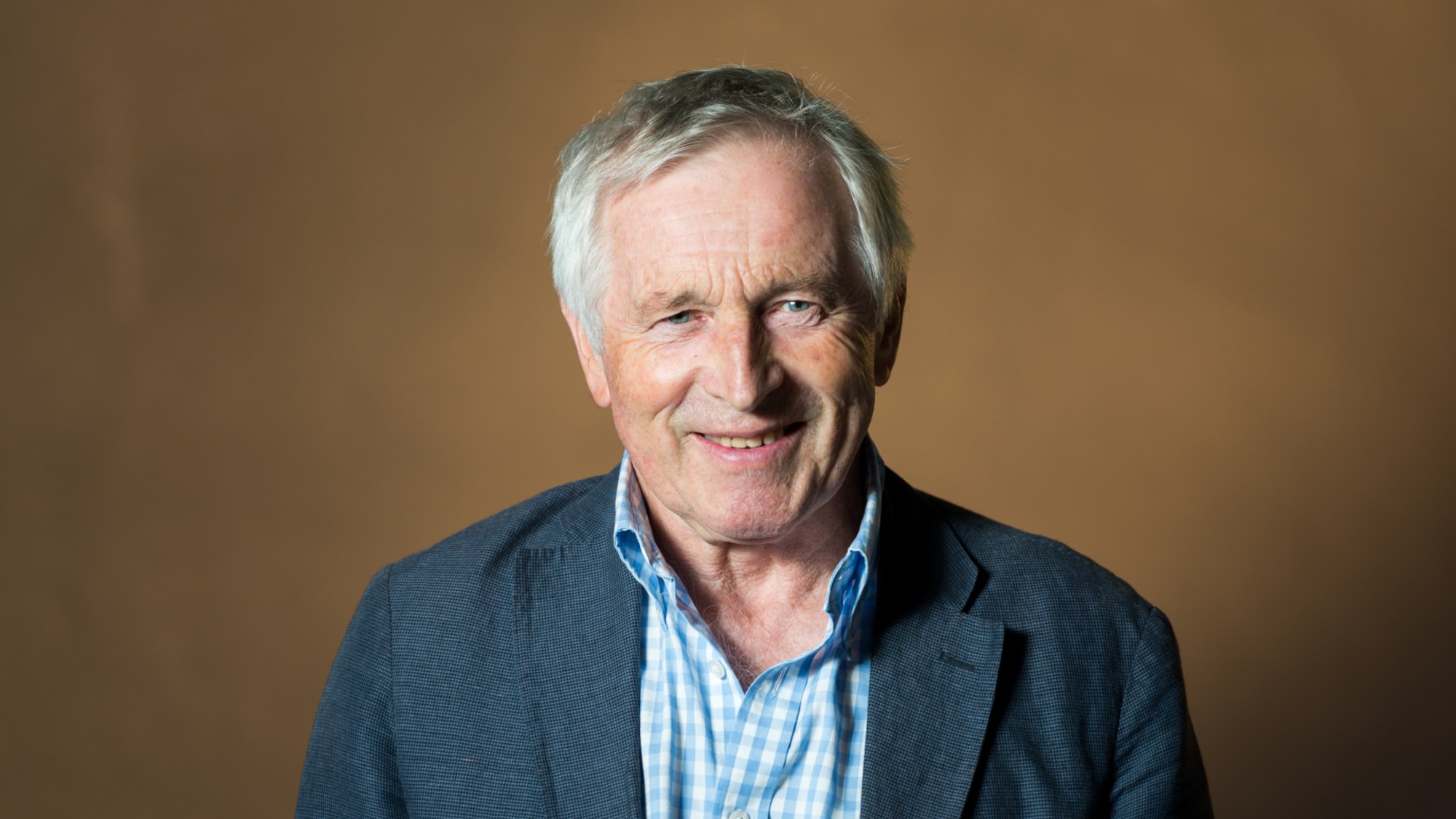Jonathan Dimbleby picks his favourite books
The author shares works by Vasily Grossman, Jason Matthews and Patrick O’Brien

A free daily email with the biggest news stories of the day – and the best features from TheWeek.com
You are now subscribed
Your newsletter sign-up was successful
The historian and broadcaster chooses his favourite books. He is talking about his book, “Endgame 1944: How Stalin Won the War”, at the Stratford Literary Festival, 30 October-2 November.
Stalingrad
Vasily Grossman, 1952, translated by Robert Chandler, 2019
Grossman is the 20th century’s Tolstoy, a genius whose “Stalingrad” is no less powerful than his later masterpiece, “Life and Fate”, but on a more intimate scale: a heroic struggle portrayed from the perspective of a wonderfully layered cast of characters.
The Week
Escape your echo chamber. Get the facts behind the news, plus analysis from multiple perspectives.

Sign up for The Week's Free Newsletters
From our morning news briefing to a weekly Good News Newsletter, get the best of The Week delivered directly to your inbox.
From our morning news briefing to a weekly Good News Newsletter, get the best of The Week delivered directly to your inbox.
Red Sparrow
Jason Matthews, 2013
The first in a trilogy of spy novels that are rooted in the murderous underworld of Putin’s Foreign Intelligence Service. “Red Sparrow” is a “sexspionage” intelligence officer who is turned by her hatred of the system. In an intricate web of international intrigue and breath-suspending drama, the emotions are intense and the violence is gruesome. Written by a former CIA operative, it feels terrifyingly authentic.
The Mayor of Casterbridge
Thomas Hardy, 1886
Set in an apparently tranquil market town, this is one of Hardy’s bleakest Wessex novels. The protagonist is a proud pillar of the community who is brought low by his past and his own deep flaws, doomed by remorseless fate.
A free daily email with the biggest news stories of the day – and the best features from TheWeek.com
Master and Commander
Patrick O’Brien, 1969
The first of a series of 20 novels set in the Napoleonic Wars, which are rich in nautical detail. Their brilliance lies in O’Brien’s portrayal of the deep if unlikely friendship between two of fiction’s most endearing characters – a buccaneering naval officer and his saturnine ship’s surgeon, who is a spy.
History of the Second World War
Winston Churchill, 1948-54
This is history on the grand scale. Of course you don’t get scholarly detachment; Churchill’s sweeping authorial vision is inevitably Anglocentric and often self-serving. Nevertheless, it is surprisingly candid and an awesome and invaluable achievement.
Titles in print are available from The Week Bookshop
-
 Political cartoons for February 19
Political cartoons for February 19Cartoons Thursday’s political cartoons include a suspicious package, a piece of the cake, and more
-
 The Gallivant: style and charm steps from Camber Sands
The Gallivant: style and charm steps from Camber SandsThe Week Recommends Nestled behind the dunes, this luxury hotel is a great place to hunker down and get cosy
-
 The President’s Cake: ‘sweet tragedy’ about a little girl on a baking mission in Iraq
The President’s Cake: ‘sweet tragedy’ about a little girl on a baking mission in IraqThe Week Recommends Charming debut from Hasan Hadi is filled with ‘vivid characters’
-
 Kia EV4: a ‘terrifically comfy’ electric car
Kia EV4: a ‘terrifically comfy’ electric carThe Week Recommends The family-friendly vehicle has ‘plush seats’ and generous space
-
 Bonfire of the Murdochs: an ‘utterly gripping’ book
Bonfire of the Murdochs: an ‘utterly gripping’ bookThe Week Recommends Gabriel Sherman examines Rupert Murdoch’s ‘war of succession’ over his media empire
-
 Gwen John: Strange Beauties – a ‘superb’ retrospective
Gwen John: Strange Beauties – a ‘superb’ retrospectiveThe Week Recommends ‘Daunting’ show at the National Museum Cardiff plunges viewers into the Welsh artist’s ‘spiritual, austere existence’
-
 Bad Bunny’s Super Bowl: A win for unity
Bad Bunny’s Super Bowl: A win for unityFeature The global superstar's halftime show was a celebration for everyone to enjoy
-
 Book reviews: ‘Bonfire of the Murdochs’ and ‘The Typewriter and the Guillotine’
Book reviews: ‘Bonfire of the Murdochs’ and ‘The Typewriter and the Guillotine’Feature New insights into the Murdoch family’s turmoil and a renowned journalist’s time in pre-World War II Paris
-
 6 exquisite homes with vast acreage
6 exquisite homes with vast acreageFeature Featuring an off-the-grid contemporary home in New Mexico and lakefront farmhouse in Massachusetts
-
 Film reviews: ‘Wuthering Heights,’ ‘Good Luck, Have Fun, Don’t Die,’ and ‘Sirat’
Film reviews: ‘Wuthering Heights,’ ‘Good Luck, Have Fun, Don’t Die,’ and ‘Sirat’Feature An inconvenient love torments a would-be couple, a gonzo time traveler seeks to save humanity from AI, and a father’s desperate search goes deeply sideways
-
 A thrilling foodie city in northern Japan
A thrilling foodie city in northern JapanThe Week Recommends The food scene here is ‘unspoilt’ and ‘fun’